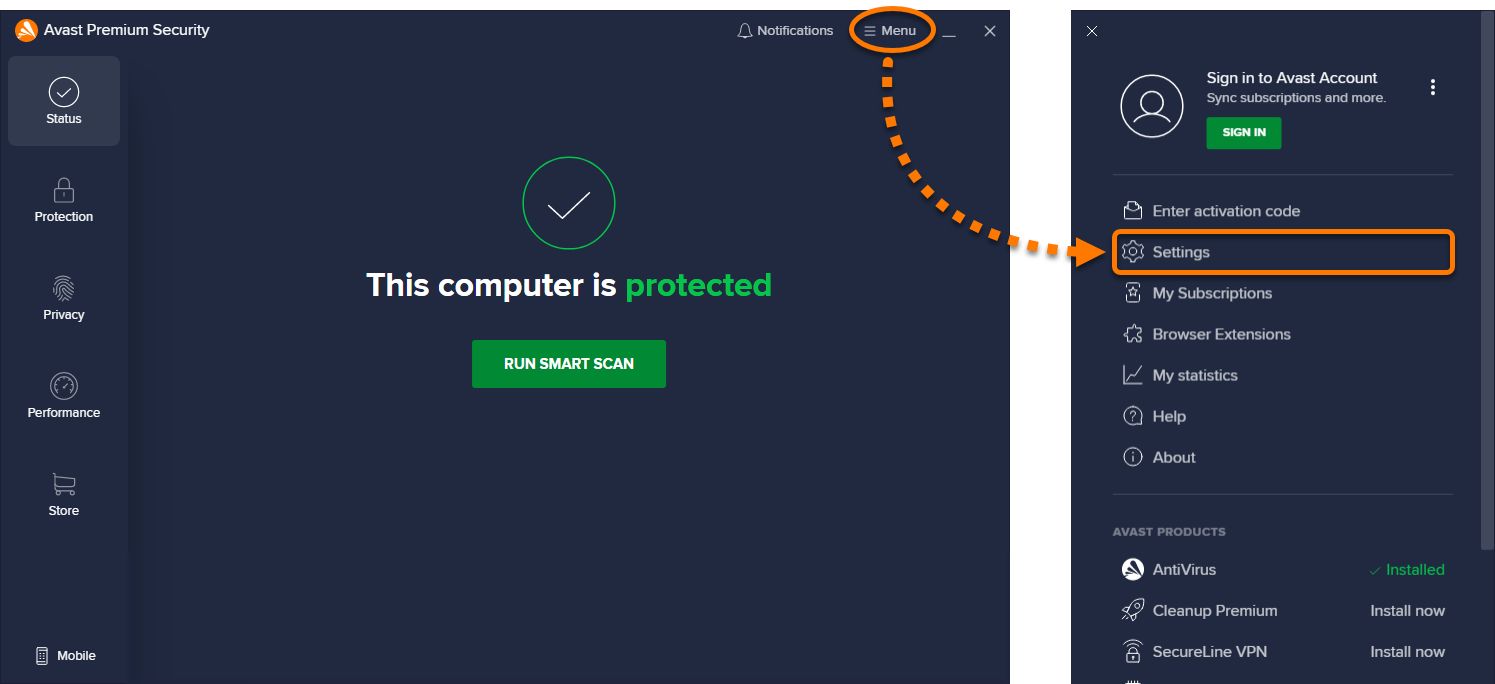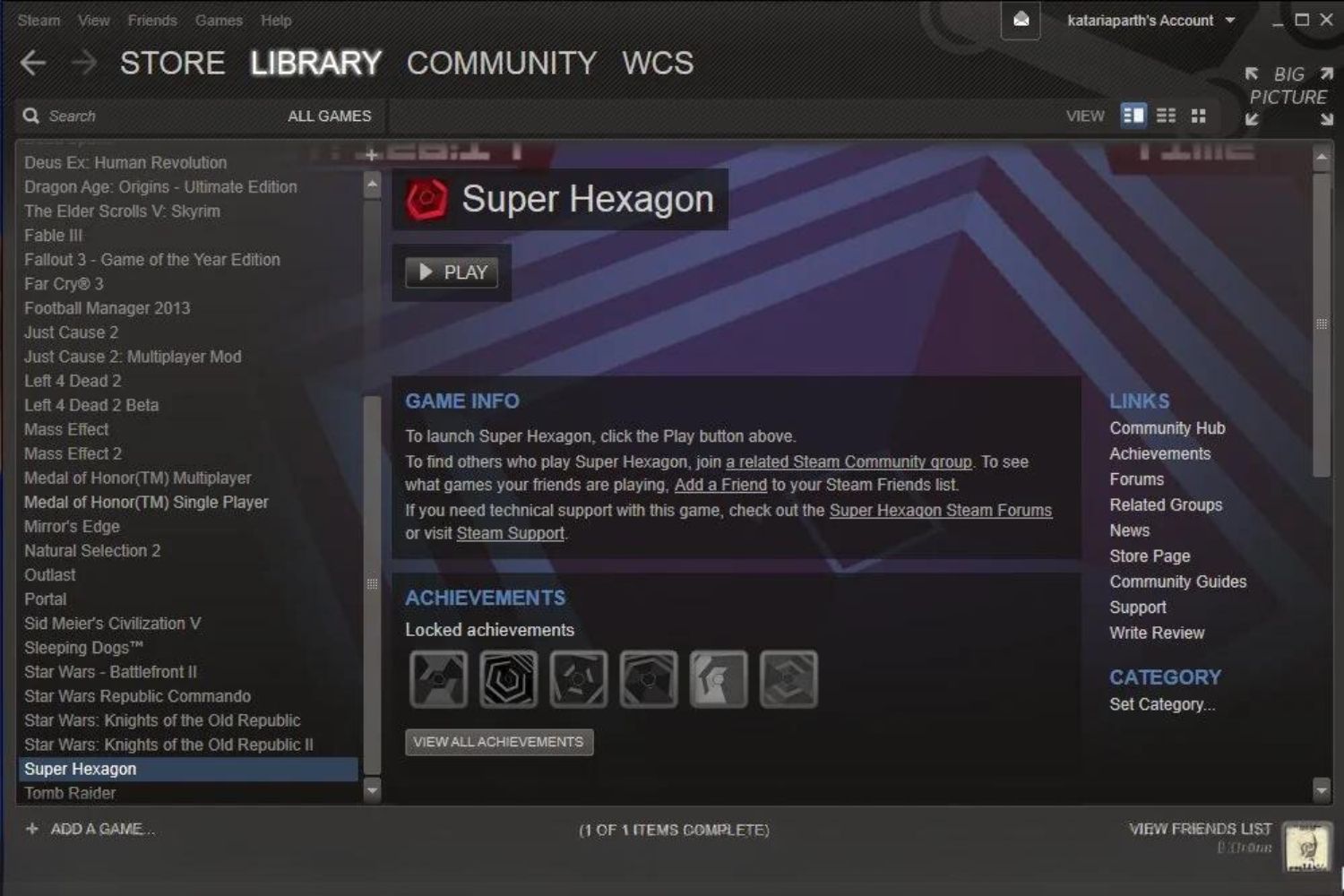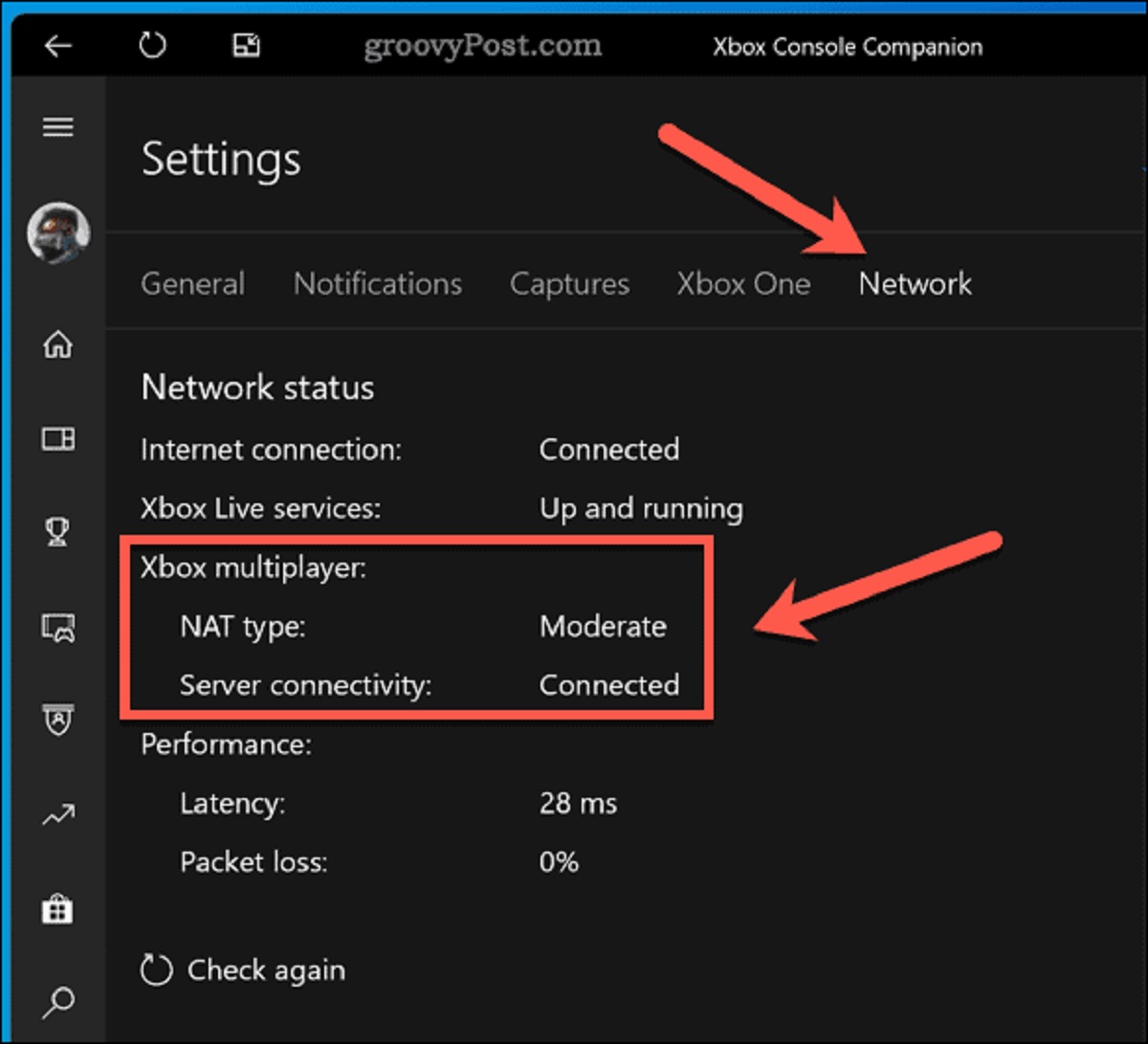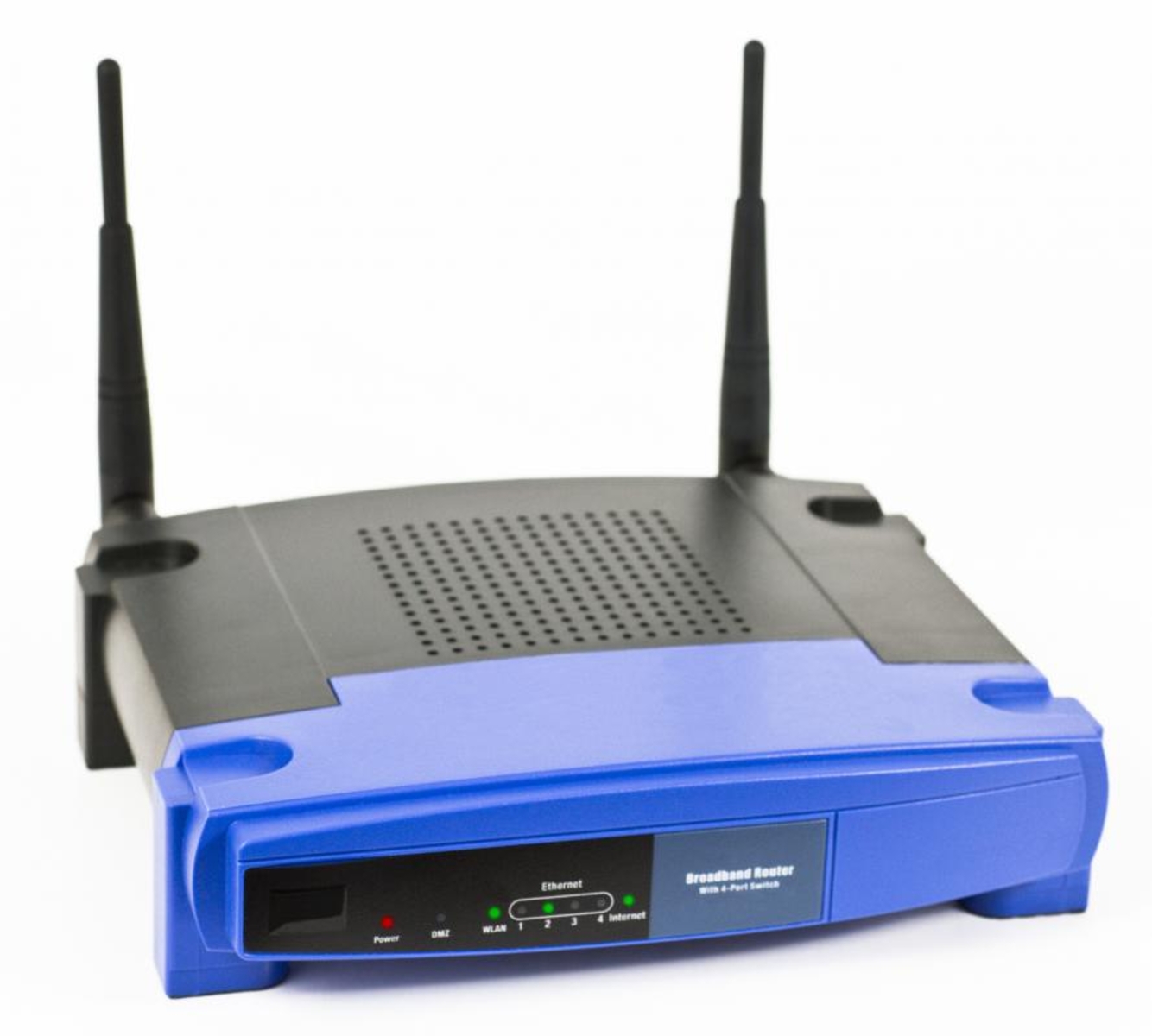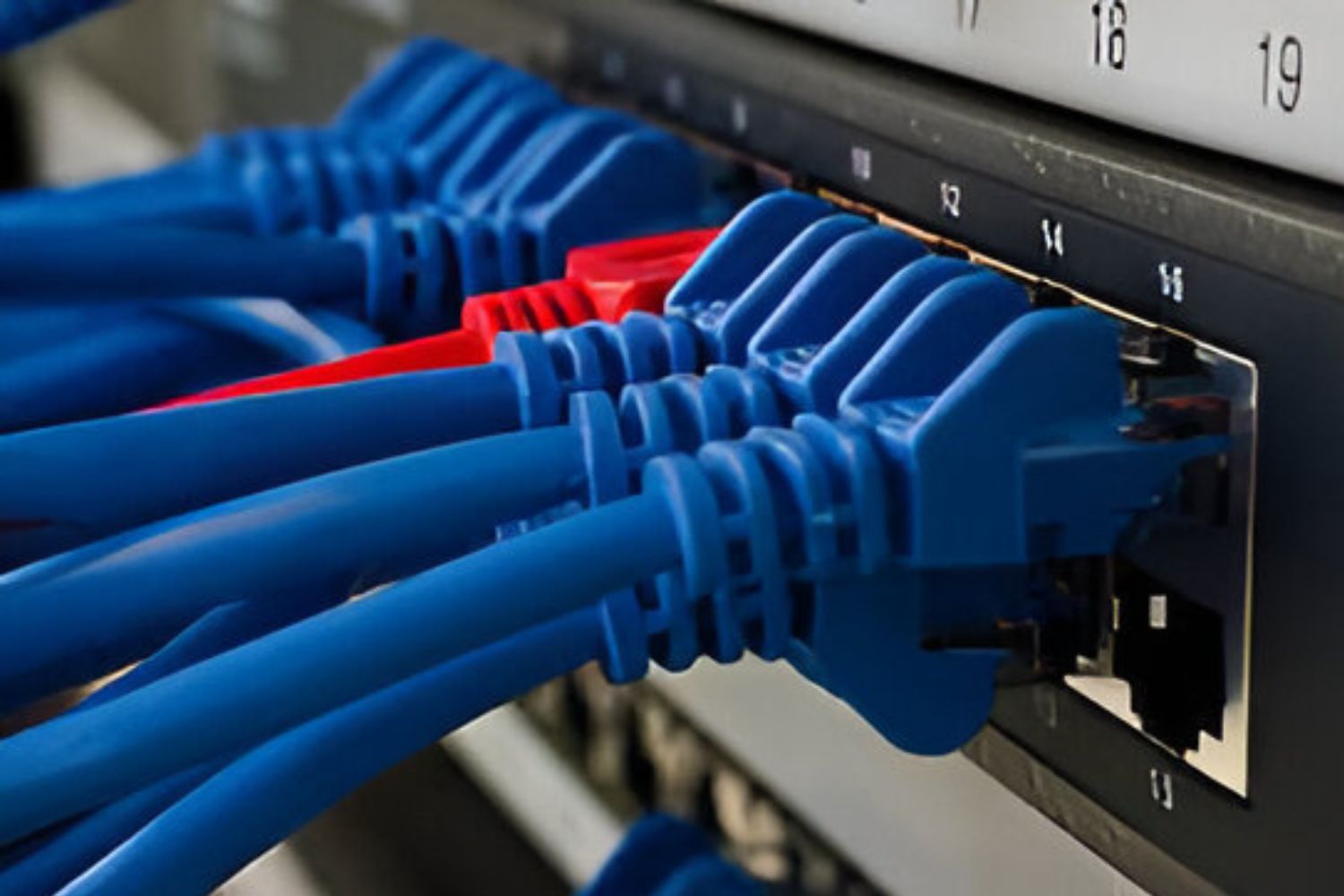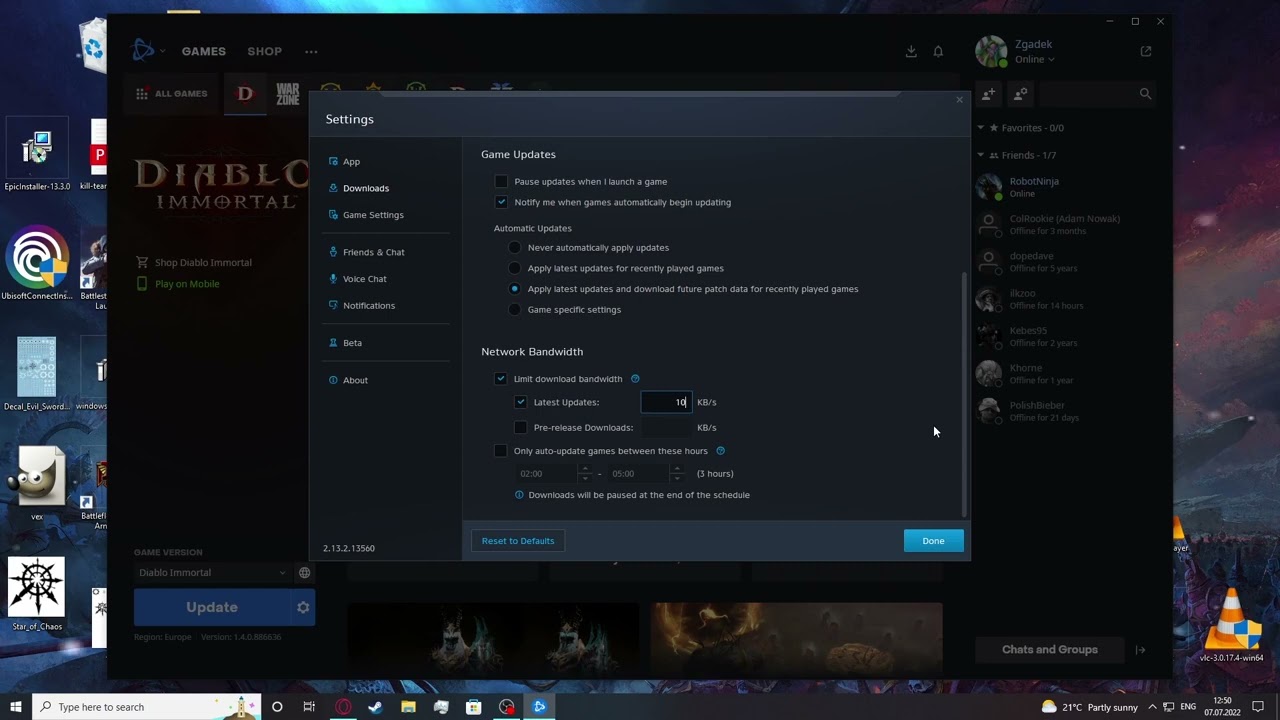Introduction
In the world of online gaming, having a seamless and uninterrupted gaming experience is crucial. One of the factors that can greatly impact the quality of your online gameplay is the configuration of your firewall. A firewall acts as a security barrier between your device and the internet, controlling the incoming and outgoing network traffic. However, it can also unintentionally block certain connections, leading to issues with online gaming.
To ensure optimal gaming performance, it is important to properly configure your firewall and allow specific connections related to online gaming. This involves understanding the various ports, protocols, and services that online games utilize. By allowing these connections, you can avoid connection errors, lags, and other issues that may disrupt your gaming sessions.
In this article, we will explore the different aspects of configuring your firewall for online gaming. We will discuss the importance of port forwarding, the different types of ports used by online games, and the specific connections and services that need to be allowed to enhance your gaming experience. Whether you’re a casual gamer or a competitive player, understanding how to optimize your firewall settings can make a significant difference in your overall gaming performance.
Keep in mind that firewall configurations may vary depending on the specific brand and model of your router or firewall device. While the general principles discussed in this article apply to most situations, it is advisable to consult the documentation or support resources provided by your router or firewall manufacturer for detailed instructions on configuring your particular device.
Now, let’s dive into the world of firewall configurations for online gaming and uncover the key components that will help you achieve a smooth and immersive gaming experience.
Port Forwarding
In order for your online games to connect and communicate with other players or game servers, it is crucial to understand the concept of port forwarding. Port forwarding is a technique that allows incoming connections from the internet to reach specific devices or services on your local network.
Online games often utilize specific port numbers to establish connections and exchange data. By default, most routers and firewalls have all ports closed to incoming connections for security reasons. This means that incoming connections from game servers or other players will be blocked, resulting in connectivity issues.
To enable proper communication for online gaming, you need to configure port forwarding on your router or firewall. This involves opening specific ports and redirecting incoming traffic to the appropriate device on your network.
The exact process of setting up port forwarding may vary depending on the make and model of your router or firewall. However, the general steps involve accessing your router’s settings through a web browser, locating the port forwarding section, and specifying the necessary port ranges and IP address of your gaming device.
It’s important to note that each type of game may require different ports to be forwarded. Some games may only require a single port, while others may require a range of ports. Consult the game’s documentation or support resources to find the specific ports needed for optimal connectivity.
Additionally, when configuring port forwarding, it is essential to ensure that your gaming device has a static IP address. A static IP address ensures that the forwarded ports are always directed to the correct device, even if its IP address changes. You can assign a static IP address to your gaming device either through your router’s settings or manually on the device itself.
With port forwarding properly configured, your online games will have the necessary open ports to establish connections and communicate with other players or game servers. This reduces the likelihood of connectivity issues and enhances your overall gaming experience.
UDP and TCP Ports
When it comes to online gaming, two commonly used protocols for communication are User Datagram Protocol (UDP) and Transmission Control Protocol (TCP). These protocols determine how data is transmitted and received over the internet.
UDP is a connectionless protocol that provides fast and efficient transmission of data. It is commonly used for real-time applications, such as online gaming, where speed is crucial. The advantage of UDP is its low latency, which reduces the time it takes for data to travel between your device and the game server. However, UDP does not provide error checking or reliability, so packets of data can be lost during transmission without the sender being notified.
TCP, on the other hand, is a connection-oriented protocol that ensures reliable and error-free transmission of data. It guarantees the delivery of packets by requesting retransmission in case of any lost data. TCP is commonly used for tasks that require the integrity and accuracy of data, such as file transfers and web browsing. However, compared to UDP, TCP introduces additional latency due to its connection setup and error-checking mechanisms.
Online games utilize both UDP and TCP protocols for different purposes. UDP is typically used for real-time gameplay, where low latency is critical for a smooth gaming experience. It is responsible for transmitting live game data, such as player movements, actions, and updates. TCP, on the other hand, is used for non-time-sensitive game data, such as logins, matchmaking, and game updates. TCP provides the reliability needed for these tasks to ensure that no data is lost or corrupted during transmission.
When configuring your firewall for online gaming, it is important to allow both UDP and TCP connections for your games. This ensures that all necessary data is transmitted and received without any restrictions. By allowing UDP and TCP ports to pass through your firewall, you enable seamless communication between your gaming device and the game servers, minimizing latency and potential connectivity issues.
It’s worth noting that the specific UDP and TCP ports required for a particular game may vary. Consult the game’s documentation, online forums, or support resources to find the recommended UDP and TCP port numbers for optimal online gaming performance.
Now that we understand the significance of UDP and TCP ports in online gaming, let’s explore the common ports used by popular online games and how to configure your firewall to allow these ports.
Common Ports for Online Gaming
Online gaming requires the use of specific ports to establish connections and facilitate the exchange of data between players and game servers. While the exact port numbers can vary depending on the game and platform, there are some commonly used ports that you should be aware of when configuring your firewall for online gaming.
One common port used in online gaming is port 80. Port 80 is typically associated with HTTP traffic, which is used for web browsing. However, some online games utilize this port for communication with game servers or for downloading updates and patches. Allowing port 80 through your firewall ensures that these connections are not blocked, enabling a smooth gaming experience.
Another commonly used port is port 443, which is associated with HTTPS traffic. This port is used for secure web browsing, but it is also utilized by some online games for encrypted communication and authentication. Allowing port 443 ensures that your games can establish secure connections with game servers or other players, protecting your sensitive data during gameplay.
For certain multiplayer games, port 53 may be required. Port 53 is used for domain name system (DNS) lookups, which translate domain names into IP addresses. In multiplayer games, DNS lookups may be necessary to connect to game servers or to discover other players in the same game session. Allowing port 53 enables your games to perform these lookups without any hindrance.
Additionally, many online multiplayer games use a range of UDP and TCP ports to facilitate real-time gameplay. These ports can vary from game to game and are often specified in the game’s documentation or support resources. It is essential to identify and allow these specific port ranges through your firewall to ensure proper communication with the game servers and other players.
When configuring your firewall for online gaming, it is important to consider the specific ports required by the games you play. While the above-mentioned ports are commonly used in online gaming, it’s important to consult the documentation or support resources of each game to identify the exact port numbers.
By allowing these common ports to pass through your firewall, you can ensure that your online games have the necessary connections to function properly. Now that we have covered the common ports used in online gaming, let’s move on to understanding what connections to allow for game clients and servers.
Allowing Game Clients and Servers
When it comes to online gaming, allowing the proper connections for game clients and servers is essential to ensure seamless gameplay and smooth communication. Game clients refer to the software running on your gaming device, while game servers are the systems that facilitate multiplayer gameplay.
To allow game clients to connect to game servers and vice versa, you need to configure your firewall to permit the necessary connections. This involves allowing incoming and outgoing traffic on specific ports and IP addresses.
Firstly, you’ll need to allow outbound connections from your game client to the game servers. This typically requires opening specific ports based on the game’s requirements. The game’s documentation or support resources should provide guidance on the ports to be opened. Additionally, allowing the IP addresses or ranges of the game servers ensures that your client can establish a connection with the correct servers.
On the other hand, allowing incoming connections from game servers to your game client is crucial for multiplayer gameplay. This is typically achieved by forwarding the necessary ports used by the game to your gaming device’s IP address. By doing so, you enable incoming data from the game servers to reach your device, allowing you to interact with other players in real-time.
It’s important to note that the specific ports and IP addresses required for game clients and servers may vary depending on the game you are playing. Always refer to the game’s documentation or support resources to identify the necessary information for proper configuration.
For an added layer of security, consider using a gaming VPN (Virtual Private Network). A VPN not only encrypts your connection but also helps in bypassing any potential firewall restrictions set by your Internet Service Provider (ISP) or network administrators. However, be aware that some games or online services may have restrictions on using VPNs, so always check the terms of service of your game or platform before using one.
Configuring your firewall to allow game clients and servers is crucial for seamless online gaming. By permitting the necessary connections, you can ensure that your device can establish and maintain a stable connection with game servers and other players, resulting in an enjoyable and lag-free gaming experience.
Now that we have covered the importance of allowing connections for game clients and servers, let’s explore another crucial aspect – allowing game updates and patches to ensure you have the latest features and fixes.
Allowing Game Updates and Patches
Keeping your games up to date with the latest updates and patches is crucial for optimal performance, bug fixes, and access to new features. To ensure that your games can download and install updates without any issues, it’s important to configure your firewall to allow the necessary connections.
Game updates and patches are typically downloaded from game servers or content delivery networks (CDNs). These downloads may utilize specific ports and protocols to establish connections and transfer data. Therefore, it is essential to configure your firewall to allow outbound connections for the relevant ports and protocols.
The most common protocol used for downloading game updates is HTTP or HTTPS. These protocols utilize port 80 for HTTP traffic and port 443 for HTTPS traffic. By allowing outbound connections on these ports, you enable your games to connect to the game servers or CDNs and download the necessary updates.
Some games may also utilize other protocols for update downloads, such as FTP (File Transfer Protocol) or P2P (Peer-to-Peer). These protocols may require additional ports to be allowed through your firewall. Consult the game’s documentation or support resources to identify the specific ports and protocols needed.
In addition to allowing outbound connections, it’s also important to allow incoming connections related to game updates. This includes allowing incoming data on the specific ports used for update verification and installation. By permitting the necessary inbound connections, your game client can receive and apply the updates without any interruptions.
It’s worth noting that some game updates and patches may be quite large in size. Therefore, it is recommended to ensure you have a stable and fast internet connection to avoid any potential issues or delays during the update process.
Configuring your firewall to allow game updates and patches ensures that your games remain up to date, incorporating bug fixes, performance enhancements, and new content. By regularly updating your games, you can enjoy a smoother and more enjoyable gaming experience.
Now that we have covered the importance of allowing game updates and patches, let’s move on to another crucial aspect – allowing voice chat and communication during online gaming.
Allowing Voice Chat and Communication
Communication is a vital aspect of online gaming, especially in multiplayer games that require coordination and teamwork. Voice chat allows players to communicate in real-time, strategize, and enhance their gaming experience. To enable smooth voice chat and communication, it’s important to configure your firewall to allow the necessary connections.
Most popular online games utilize voice chat systems that rely on specific ports and protocols to establish communication between players. These ports may vary depending on the game and the voice chat service being used. It’s important to identify these ports and protocols to ensure that your firewall permits the necessary connections.
The most common voice chat protocols used in online gaming are based on UDP, such as Voice over IP (VoIP) protocols like Mumble, Teamspeak, or Discord. These protocols enable real-time voice transmission between players during gameplay. By allowing outbound UDP connections on the ports used by the voice chat service, you ensure that your voice can be heard by other players and that you can listen to their communication as well.
It’s important to note that some voice chat systems may use additional TCP ports for authentication or other related functions. Therefore, it’s essential to consult the documentation or support resources of the specific voice chat service to identify the required ports and protocols.
Allowing incoming voice chat connections is equally important to ensure that you can receive voice communication from other players during gameplay. To enable incoming voice chat connections, you may need to configure port forwarding on your router’s firewall. This allows the incoming voice data to reach your gaming device, ensuring that you can actively participate in voice chat conversations.
It’s worth mentioning that some games may have built-in voice chat features that do not rely on external voice chat services. In such cases, it’s essential to verify the necessary ports and protocols specific to the game’s voice chat system.
By configuring your firewall to allow voice chat connections, you can participate in real-time communication with other players, enhancing teamwork, coordination, and the overall multiplayer gaming experience.
Now that we have covered the significance of allowing voice chat and communication, let’s move on to the importance of allowing multiplayer connections in online gaming.
Allowing Multiplayer Connections
Playing multiplayer games online allows you to engage with other players from around the world, creating a dynamic and interactive gaming experience. To ensure seamless multiplayer gameplay, it’s crucial to configure your firewall to allow the necessary connections for multiplayer connections.
Multiplayer connections involve establishing connections with other players’ devices, allowing real-time interaction and gameplay. These connections utilize specific ports and protocols to enable communication and data exchange between players.
To allow outgoing multiplayer connections, you need to configure your firewall to permit the necessary outgoing traffic on the specified ports. These ports can vary depending on the game and the multiplayer system being used. It’s essential to consult the game’s documentation or support resources to identify the required ports for optimal multiplayer connectivity.
Additionally, allowing incoming multiplayer connections is crucial to enable other players to connect to your gaming device and participate in multiplayer sessions. This may involve configuring port forwarding on your router’s firewall to redirect incoming connections to your gaming device’s IP address. By allowing incoming multiplayer connections, you can actively engage with other players, team up, compete, or cooperate in various game modes.
It’s important to note that some games may use dedicated multiplayer servers or rely on peer-to-peer connections between players. In the case of dedicated servers, you may need to configure port forwarding or allow specific IP addresses to establish connections with those servers. For peer-to-peer connections, you may need to allow both outgoing and incoming connections to facilitate direct communication between players.
It’s worth mentioning that some games may have multiplayer matchmaking systems that automatically handle the connection establishment between players. In such cases, it’s crucial to ensure that the necessary ports and protocols for the matchmaking system are allowed through your firewall.
By properly configuring your firewall to allow multiplayer connections, you can participate in exciting multiplayer sessions, collaborate with other players, and compete on a global scale, enhancing the overall gaming experience.
Now that we have covered the importance of allowing multiplayer connections, let’s explore another crucial aspect of online gaming – allowing game streaming.
Allowing Game Streaming
Game streaming has become increasingly popular, allowing gamers to play their favorite games remotely, without the need for powerful gaming hardware. To enjoy seamless game streaming experiences, it is important to configure your firewall to allow the necessary connections.
Game streaming platforms, such as Twitch, YouTube Gaming, or Microsoft’s Mixer, utilize specific ports and protocols to transmit video and audio data between the streaming server and the viewer’s device. These platforms typically use either TCP or UDP connections, depending on the specific streaming technology being used.
Allowing outbound connections on the required ports for game streaming platforms ensures that your device can establish a connection with the streaming servers. By permitting these connections, you can stream your gameplay to a wider audience, share your gaming experiences, and interact with viewers in real-time.
When it comes to game streaming, it is also important to take into consideration any additional services or features that the streaming platform may offer. Some platforms may provide chat functionality or allow viewers to interact with your stream through comments and emotes. To enable these features, you may need to allow connections on specific ports or protocols dedicated to chat functionality and viewer interaction.
Additionally, if you plan to use dedicated streaming software for game streaming, such as OBS (Open Broadcaster Software) or XSplit, you may need to configure your firewall to allow the necessary outbound and incoming connections for these software applications. This ensures that your streaming software can establish connections with the streaming platform and transmit data to your viewers.
It’s important to keep in mind that game streaming platforms and dedicated streaming software may have different requirements and may use different ports and protocols. Always refer to the documentation or support resources provided by the streaming platform or streaming software to identify the specific ports and protocols to be allowed through your firewall.
By allowing the necessary connections for game streaming through your firewall, you can share your gaming experiences with others, showcase your skills, and engage with your audience, creating an interactive and entertaining streaming environment.
Now that we have covered the importance of allowing game streaming connections, let’s move on to discussing the significance of allowing Virtual Private Networks (VPNs) in online gaming.
Allowing Virtual Private Networks (VPNs)
Virtual Private Networks (VPNs) offer a secure and private connection when accessing the internet. They have become increasingly popular among gamers, providing benefits such as enhanced privacy, protection against DDoS attacks, and access to region-restricted content. To enable the use of VPNs in online gaming, it’s important to configure your firewall to allow the necessary connections.
VPNs work by encrypting your internet traffic and routing it through a server located in a different geographic location. This helps protect your data and identity, as well as bypass any restrictions set by your Internet Service Provider (ISP) or network administrators.
To allow VPN connections, you usually need to allow outgoing connections through specific ports and protocols used by the VPN service. Common VPN protocols include OpenVPN (often uses UDP port 1194 or TCP port 443), IPSec (commonly uses UDP port 500 and UDP port 4500), and L2TP/IPSec (uses UDP ports 500 and 1701, and TCP port 1723).
Allowing VPN connections on these ports and protocols ensures that your gaming device can establish a secure connection to the VPN server. It encrypts all internet traffic, routing it through the VPN server, and allowing you to access game servers and services as if you were in a different location.
However, while using a VPN can provide benefits in terms of privacy and access, there are a few considerations to keep in mind. Some online games or services may have restrictions on the use of VPNs, so it’s important to review the terms of service for each game or platform. Additionally, connecting to a VPN can introduce additional latency, which can impact your online gaming experience. Choosing a VPN server located close to your actual geographic location can help minimize latency issues.
Configuring your firewall to allow VPN connections allows you to enjoy the advantages of using a VPN in online gaming. It provides an additional layer of security, enables access to region-restricted content, and protects your privacy while gaming.
Now that we have covered the importance of allowing VPN connections for online gaming, let’s explore the significance of allowing game streaming platforms to enhance your streaming experience.
Allowing Game Streaming Platforms
Game streaming platforms have revolutionized the way gamers connect with each other and share their gameplay experiences. Platforms such as Twitch, YouTube Gaming, and Mixer have gained immense popularity by providing a platform for streamers to broadcast their gameplay live to an audience. To fully enjoy the benefits of game streaming platforms, it is important to configure your firewall to allow the necessary connections.
Game streaming platforms typically use specific ports and protocols to transmit video and audio data from the streamer’s device to the streaming platform’s servers. Allowing outbound connections on the required ports and protocols ensures that your device can establish a connection with the streaming platform. This allows you to broadcast your gameplay to a wider audience and interact with viewers in real-time.
In addition to outbound connections, some game streaming platforms may require certain inbound connections as well. These connections allow the streaming platform to send data back to your device, such as viewer chat messages and stream analytics. Configuring your firewall to allow these inbound connections ensures a smooth and seamless streaming experience, allowing you to engage with your viewers effectively.
It’s worth noting that different game streaming platforms may have different requirements in terms of ports and protocols. Always refer to the documentation or support resources provided by the streaming platform to identify the specific ports and protocols to be allowed through your firewall.
It is also important to consider any additional features or services that the streaming platform may offer. For example, some game streaming platforms provide integration with external chat services or alert systems. Allowing connections on specific ports or protocols related to these features ensures that your stream setup works seamlessly, allowing you to interact with your audience effectively.
By allowing the necessary connections for game streaming platforms through your firewall, you can fully embrace the world of game streaming. Whether you’re a casual streamer or aspiring to build a streaming community, configuring your firewall for game streaming platforms enables you to showcase your gameplay, engage with viewers, and create a memorable streaming experience.
Now that we have covered the importance of allowing game streaming platforms, let’s explore the significance of allowing game-specific services and features to enhance your gaming experience.
Allowing Game-specific Services and Features
Many online games come with specific services and features that enhance the gaming experience, such as integrated voice chat, in-game purchases, leaderboard updates, and social features. To fully enjoy these game-specific services and features, it is essential to configure your firewall to allow the necessary connections.
Game-specific services and features typically rely on specific ports and protocols to establish connections between your gaming device and the game’s servers or external services. Allowing outbound connections on these ports and protocols ensures that your device can communicate with the necessary servers and services to access these features.
For example, integrated voice chat in games requires the appropriate ports and protocols to be allowed through your firewall. This allows you to communicate with other players seamlessly, enhancing teamwork and coordination in multiplayer games.
In-game purchases and downloadable content (DLC) often involve connections to external servers to authorize and download the additional content. By allowing outbound connections on the required ports and protocols, you can access and download these add-ons, expanding your gameplay experience.
Leaderboard updates and social features, such as connecting with friends, sending invitations, or sharing achievements, also require specific connections to game servers or external social platforms. Allowing outbound connections on the necessary ports and protocols ensures that you can stay connected, compete with others, and share your gaming accomplishments.
It’s important to note that the specific ports and protocols required for game-specific services and features may vary depending on the game you are playing. It’s always best to consult the game’s documentation, online forums, or support resources to identify the necessary information for proper configuration.
By configuring your firewall to allow game-specific services and features, you can fully immerse yourself in the game world, enjoying all the functionalities and enhancements that the game offers. Whether it’s connecting with friends, utilizing in-game communication, or accessing additional content, properly configuring your firewall ensures that these services and features are readily available.
Now that we have explored the importance of allowing game-specific services and features, let’s move on to discussing the significance of allowing anti-cheat systems for fair and secure online gaming.
Allowing Anti-Cheat Systems
Fair and competitive gameplay is essential in online gaming, which is why many games implement anti-cheat systems to ensure a level playing field. These systems detect and prevent cheating or hacking attempts, providing a secure and enjoyable gaming experience. To allow anti-cheat systems to function effectively, it is important to configure your firewall to allow the necessary connections.
Anti-cheat systems typically require outbound connections to specific servers or services. By allowing these connections, your device can communicate with the anti-cheat servers, sending and receiving data related to cheat detection and prevention.
These connections may use specific ports and protocols that are unique to each game or anti-cheat system. It is essential to consult the game’s documentation or support resources to identify the required ports and protocols. By allowing outbound connections on these ports and protocols, you enable the anti-cheat system to update its definitions and algorithms, ensuring that cheaters are detected and appropriately dealt with.
Allowing inbound connections related to anti-cheat systems is less common since the majority of the communication occurs from your device to the anti-cheat servers. However, in some cases, the anti-cheat system may need to communicate with your device to verify the integrity of game files or perform certain checks. It is important to consult the game’s documentation or support resources to identify any specific settings or requirements for inbound connections related to anti-cheat systems.
It’s worth mentioning that some anti-cheat systems have specific requirements or recommendations regarding other software running on your device, such as antivirus programs or firewalls. Pay attention to any guidance provided by the game developer or the anti-cheat system itself to ensure compatibility and proper functionality.
Configuring your firewall to allow anti-cheat system connections is crucial for fair and secure online gaming. By enabling the necessary connections, you contribute to maintaining a level playing field, ensuring a positive experience for all players and minimizing the impact of cheaters on the gaming community.
Now that we have covered the significance of allowing anti-cheat systems, let’s move on to exploring the importance of allowing third-party applications and tools for enhanced gaming experiences.
Allowing Third-party Applications and Tools
In addition to the core game itself, there are often third-party applications and tools that can enhance your gaming experience. These tools can range from overlays and chat clients to performance monitoring and optimization software. To fully utilize these third-party applications, it’s important to configure your firewall to allow the necessary connections.
Third-party applications and tools often require network connections for various functions, such as displaying overlays in-game, providing voice communication features, or monitoring hardware performance. Allowing outbound connections from these applications enables them to communicate with their respective servers or services, ensuring their smooth functionality.
Some popular examples of third-party applications include communication tools like Discord or Teamspeak, which allow you to communicate with other players while gaming. These applications typically require outbound connections on specific ports and protocols to connect with their servers or establish voice communication.
Additionally, performance monitoring and optimization tools, such as MSI Afterburner or RivaTuner, may require network connections to provide real-time hardware monitoring or overclocking features. Allowing outbound connections for these tools ensures their seamless operation and the ability to monitor your system’s performance during gameplay.
It’s important to note that each third-party application may have its own requirements in terms of ports, protocols, and network connectivity. Consult the documentation or support resources provided by the application developer to identify the necessary information for proper firewall configuration.
Allowing inbound connections for third-party applications is less common, as most of the communication occurs from your device to external servers or services. However, in some cases, certain applications may require inbound connections for specific features or functions, such as remote access or remote control capabilities. Consult the application’s documentation or support resources to determine if any specific settings or requirements need to be configured for inbound connections.
By configuring your firewall to allow connections for third-party applications and tools, you can enhance your gaming experience and take advantage of additional features and functionalities. Whether it’s voice communication, performance monitoring, or optimization, these applications can help you streamline your gaming setup and make the most out of your gaming sessions.
Now that we have explored the importance of allowing third-party applications and tools, let’s move on to the significance of allowing web browsers and social features for comprehensive gaming experiences.
Allowing Web Browsers and Social Features
Web browsers and social features are an integral part of modern gaming experiences, offering access to game-related websites, forums, and social platforms. To fully enjoy the benefits of web browsing and social features in gaming, it is important to configure your firewall to allow the necessary connections.
Web browsers provide a gateway to game-related websites, where you can access game guides, forums, patch notes, and other valuable resources. Allowing outbound connections from your web browser ensures that you can connect to these websites and retrieve the necessary information to enhance your gameplay or troubleshoot any issues you may encounter.
Social features, such as the ability to connect with friends, send invitations, or join gaming communities, also rely on network connections. Allowing outbound connections on the necessary ports and protocols ensures that you can actively engage with other players, share your gaming experiences, and stay connected within the gaming community.
In addition to outbound connections, some websites or social platforms may require incoming connections for certain functionalities, such as receiving notifications or participating in live chats. Allowing inbound connections for web browsers and social platforms enables these features to operate seamlessly, keeping you connected and up-to-date with the latest information and events.
It is worth noting that some games may have integrated web browsers within their user interface. Configuring your firewall to allow connections for these embedded browsers ensures a smooth browsing experience without any limitations or disruptions.
While web browsing and social features are essential for a comprehensive gaming experience, it is important to exercise caution and follow best practices to protect your privacy and security. Be mindful of the websites you visit and only download content from trusted sources to avoid potential malware or phishing attempts.
By configuring your firewall to allow web browsing and social features, you can expand your gaming experience beyond the core gameplay. Access game-related resources, connect with other players, and stay informed about the latest news and updates within the gaming industry.
Now that we have covered the significance of allowing web browsers and social features, let’s wrap up our discussion on configuring your firewall for online gaming.
Conclusion
Configuring your firewall for online gaming is crucial to ensure smooth gameplay, enhance security, and enable access to various game-related features and services. By properly allowing the necessary connections, you can minimize latency, prevent connection errors, and protect your gaming experience from potential threats.
We explored several important aspects of configuring your firewall for online gaming, including port forwarding, allowing UDP and TCP ports, common ports for online gaming, and specific connections for game clients, servers, updates, voice chat, multiplayer, game streaming, VPNs, game streaming platforms, game-specific services, anti-cheat systems, third-party applications, web browsers, and social features.
Each of these aspects plays a role in optimizing your online gaming experience. From forwarding ports and allowing specific protocols to enabling voice chat and protecting against cheaters, properly configuring your firewall ensures that you can fully enjoy multiplayer gameplay, connect with other players, and access the various services and features that make gaming more immersive and enjoyable.
It’s important to note that while these guidelines provide a comprehensive overview, firewall configurations can vary depending on your specific router or firewall device. Always refer to the documentation or support resources provided by your router or firewall manufacturer for detailed instructions on configuring your particular device.
By taking the necessary steps to configure your firewall for online gaming, you are setting yourself up for a smoother and more secure gaming experience. Understand the requirements of the games you play, consult the documentation and support resources, and adjust your firewall settings accordingly.
Remember to strike a balance between security and accessibility when configuring your firewall. While it’s important to protect your device and network, it’s equally crucial to allow the necessary connections to enable seamless online gaming.
With a properly configured firewall, you can dive into the world of online gaming confidently, knowing that you have taken the necessary steps to optimize your gaming experience and protect your gaming sessions. So, go ahead and enjoy your time in the virtual realm, connecting with players from all around the globe.









